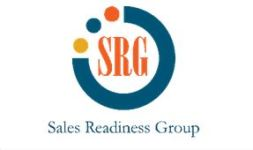ATD Blog
Maximizing the Effectiveness of Your Annual Sales Meeting
Wed Dec 22 2021

Here are some lessons learned we’ve picked up along the way from working with our clients as they’ve planned their annual sales meetings.
We like to ask executive sponsors and meeting planners basic questions such as:
What are you trying to accomplish with this meeting?
What do you expect the participants to think, feel, and do differently as a result of this meeting?
Often, the meeting goals aren’t well defined. It appears as if someone is attempting to fill timeslots so that everyone is engaged for two or three days but with no cohesive message or desired outcome.
While there may be multiple priorities and objectives that the meeting is attempting to accomplish, it is essential to consider which of the numerous objectives are realistic and attainable in a relatively short time. To assist with this prioritization, here is a helpful mnemonic device: M.E.E.T.I.N.G.S.
A good sales meeting may accomplish several of the following objectives; however, it is unlikely that all will be accomplished at once and rarely by one speaker.
Motivation
Motivational speakers are often the hallmark of annual sales meetings, and there is an entire cottage industry focused on providing upbeat, inspirational speeches for them. Former athletes, military veterans, retired government officials, pop-psychology authors, and many others are fantastic options.
What is often missing is a solid link between the polished presentation and the priorities facing the organization. While the motivational component may be uplifting, the speaker should offer the participants a takeaway from the session and link it to their jobs moving forward.
Entertainment
For better or worse, many participants of annual sales meetings expect to be entertained. This situation can be a valuable opportunity for the team to get together and blow off steam while taking away a positive memory from the event.
Entertainment is a great objective, but it is often combined in an ill-fated attempt to do too many things simultaneously, (such as motivate, entertain, team-build, and train). Our suggestion is to keep any entertainment separate from other training and information sessions.
Education and Training
We often get requests to make a two-day intensive sales training program “fit” into a two- to four-hour slot. To make matters more challenging, the session is usually scheduled on day two or three of a four-day program packed with nonstop speakers and networking events.
This setting is not ideal, nor is it realistic to expect people to be highly engaged and tuned in at this point in the program. Therefore, our recommendation either is to begin the meeting with training (coming in a day or two early and focusing on the training content) or use the meeting to kick off a more comprehensive training program and follow it up at a later date.
Providing an engaging overview and interactive session can provide an excellent orientation to the training material, but do not expect to train the complete curriculum during the sales meeting if only a few hours are available. The training material can be followed up with virtual instructor-led training sessions or in-person workshops scheduled later during the year.
Team Building
Team-building activities often get the brunt of jokes regarding annual sales meetings. While these sessions are scheduled with the best intentions, participants are uncertain of anything designed to coerce them to work better together.
If team building is one of the program’s objectives, ensure it is vetted, receives high marks from participants, and is tailored to the organization’s unique culture.
A poorly designed and executed program put on by the hotel or a third party can adversely affect the overall program. For example, suppose a quality team-building program isn’t available. In that case, the organization could allow everyone to seek out recreational activities (golf, hiking, or sightseeing, for example) and let the team-building become more organic than forced.
Information Sessions
Having the entire sales organization together provides an excellent opportunity to relay information about new products and services, industry trends, competitor threats, and other corporate communications.
While a necessary and critical part of any sales meeting, the question again should be what are the participants being asked to do with this information? Are there tools and reference materials available to support the information? Why should they pay attention, and what’s in it for them?
Continuing to ask these questions can help focus these sessions and make them more meaningful and productive.
Networking
For many sales teams, the annual sales meeting may be the only opportunity to meet face to face and network during the year. Often, these sessions are where participants exchange best practices, support and coach one another, and discuss what they see in the marketplace. We suggest that networking be reinforced and supported throughout the conference by providing many opportunities for the participants to interact through small group-working sessions, break-out groups, and informal networking time between sessions.
In addition, the event planners should provide a means for everyone to stay connected after the session (via social media, participant lists, internal applications, Chatter, or so on). Building on the sales professional’s desire to connect and interact can influence the organization’s ability to adapt and grow.
Goal Setting
Setting and discussing annual sales goals for the year is a traditional activity conducted in a sales meeting. Whether done at the divisional, regional, or team level, each group can dive into their plans for the year and discuss ideas. Individuals can commit to what they will do to achieve the desired results. A few questions that can help drive the annual sales plan are:
What is the vision for the sales team this year?
What goals will be measured that support the vision?
What strategies and tactics will help us achieve this vision?
What personal commitments are needed to achieve the results?
What is the accountability plan?
Strategic Direction
No sales meeting would be complete without a discussion about the future. Typically covered by a key executive or several executives, this session will cover where the organization is headed and the plans to get there.
This topic should be delivered before the divisional and team breakouts, if possible, so each group can tailor its plans based on the company’s strategic direction. The goal of the strategy session is to have the participants feel optimistic about where the company is headed and to inspire the sales team to achieve higher goals.
Remember, it is unrealistic to accomplish these objectives one meeting at a time. With careful planning and engagement with the right partners, however, the sales meeting can be a motivating, informative, and productive kickoff to the new sales year.

